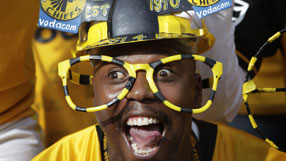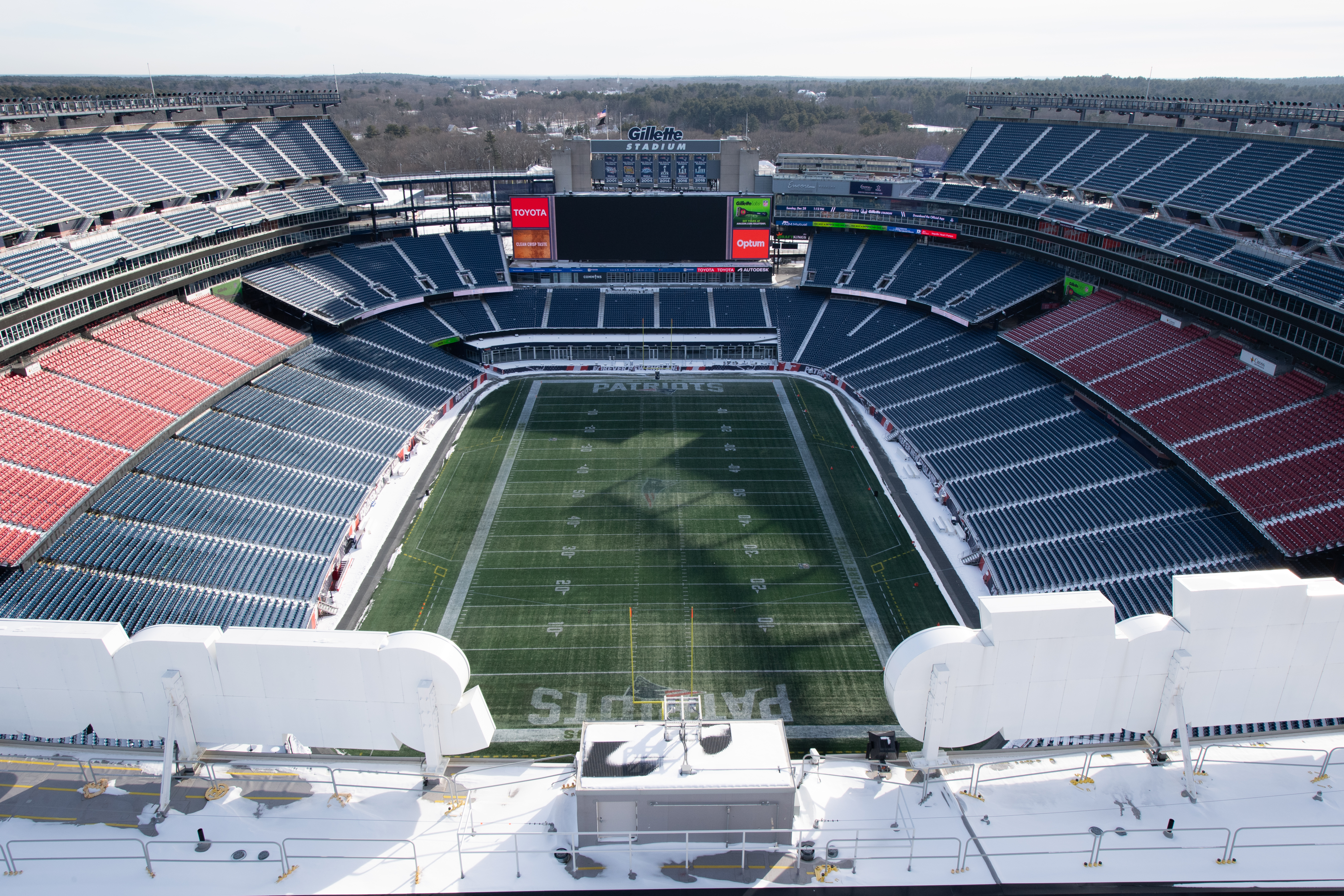
The best features, fun and footballing quizzes, straight to your inbox every week.
You are now subscribed
Your newsletter sign-up was successful
Want to add more newsletters?

Five times a week
FourFourTwo Daily
Fantastic football content straight to your inbox! From the latest transfer news, quizzes, videos, features and interviews with the biggest names in the game, plus lots more.

Once a week
...And it’s LIVE!
Sign up to our FREE live football newsletter, tracking all of the biggest games available to watch on the device of your choice. Never miss a kick-off!
Join the club
Get full access to premium articles, exclusive features and a growing list of member rewards.
Dancing fans wearing the brightly painted hats made from converted plastic construction helmets, often paired with giant mock glasses, are a trademark of the South African game.
They are sure to be a major feature of Africa's first World Cup when it starts on June 11, together with the cacophonous blast of vuvuzela trumpets which may be a secret weapon against foreign teams unable to communicate through the din.
Former cleaner Alfred Baloyi, 52, invented the decorated helmets in 1979. A friend gave him a construction helmet for protection when watching his beloved Kaizer Chiefs, after a fellow fan was hit by a bottle.
Baloyi, an uneducated but talented natural artist, first starting painting the helmets, then adding horns and finally using a box knife to cut out elaborate stand-up designs.
He calls himself "the Enemy of Plastic" although his nickname from the terraces is The Magistrate.
Baloyi, originally from northern Limpopo province, started selling a few at a time beside the road but his son and manager, Lovemore, 29, says they have since sold many thousands.
Alfred now shuns journalists, leaving his son to talk to visitors, and concentrating on helmet designs.
The best features, fun and footballing quizzes, straight to your inbox every week.
With demand booming for the humble invention ahead of the World Cup, they have opened a factory in the Wynberg area of Johannesburg where Lovemore says they are producing up to 80 makarapas a day.
GLOBAL CRAZE?
The Baloyis hope the exposure of makarapas during the world's most watched sporting event will turn the helmets into a global craze for international football fans.
"We are looking forward to selling in Brazil because we know they are hosting the 2014 World Cup. We are going far," Lovemore told Reuters.
"People around the world will know the makarapa was started in South Africa. Whenever there is an event in the world they must come to buy makarapas."
Around 35 people recruited from all over South Africa work in the factory, which reeks of paint. They sit round tables and are divided into teams of base painters, cutters, primer painters and artists.
The cutters heat the plastic helmets over gas burners to make them easier to mould.
The shelves of the factory are stacked with helmets for various South African companies and foreign fans, with Brazil, Germany, Spain and Italy the biggest customers.
U.S. helmets carry U.S. President Barack Obama's election slogan "Yes We Can" and an Uncle Sam hat.
Most of the factory helmets are less complicated and fantastical than the "signature range" produced in Baloyi's original Germiston township workshop near Johannesburg.
Some Brazilian helmets, though, sport a stand-up figure of Rio's Christ the Redeemer statue and others have Baloyi's trademark witchdoctor on top.
Prices range from 250 rand ($33) for simple South African helmets to 1,500 for the more elaborate corporate o
 Join The Club
Join The Club










